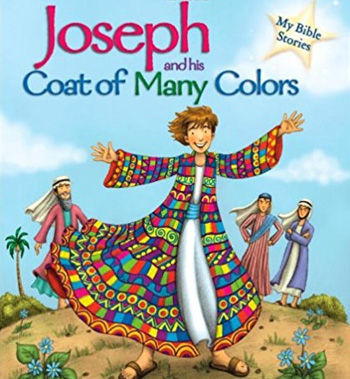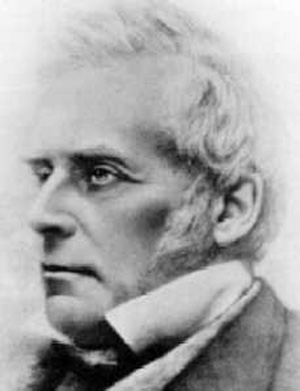Thou Shalt Maybe Kill: 5 Bible Facts Everyone Gets Wrong

The Bible is the most popular book in the world -- yes, more popular than Fifty Shades Of Grey. Indeed, more than all of Stephen King's books combined. Of course it outsells the entire Harry Potter series. Wait, really? We'll get our researchers to double-check that last one. That just doesn't sound right. But despite its massive influence, there are still a few very basic points we get wrong about the Bible. For example ...
Noah Did Not Take Just Two Of Each Animal On The Ark
You know the nursery rhyme: The animals went in two by two (hurrah, hurrah), while all the people God judged unworthy were washed away by a great flood and died horrible deaths (hurrah, hurrah). The whole point of bringing the animals is that they would couple and repopulate their respective species after the flood. So all that was needed was two of each, a little privacy, and a lax policy on inbreeding.

Look at that lion. That lion is into it.
But Actually ...
For unclean animals (like pigs, donkeys, and other dumbasses), it was two of each, but for clean ones (sheep, cattle, and everything else God deemed edible) it was either seven or fourteen. While Genesis 6:19 says Noah should bring "two of all living creatures," in Genesis 7:2 God clarifies that He was only talking about unclean beasts. For all others, Noah was supposed to bring seven -- or seven pairs, depending on which translation you read. These were presumably for food, and, of course, sacrifices. In fact, the story goes on to say that almost immediately after the ark landed, Noah made burnt offerings of one of each clean animal.

Sure puts Evan Almighty in a new light.
That would be in line with the thinking of the time, obviously. Animal sacrifice was common, and we still eat the poor, delicious bastards to this day. But there's a kind of Dr. Dolittle spin we tend to put on Noah and his ark -- cute little animated tales of Noah out there partying on his mega-yacht with a whole zoo full of pals. And then he stops to eat a few, and the party grows awkward. Then he gets out the torch, and the real fun begins.
The Ten Commandments Aren't What You Think
Well, let's see, there's "You shall not kill," and-
But Actually ...
Wrong already. For starters, "You shall not kill" is a mistranslation -- the original Hebrew phrase means "You shall not murder." Legal justification marks a big difference between the two. Which makes a little more sense, since about half the Bible features impaling, mauling, and stabbing people on the toilet.

"He's just pining."
We generally perceive the commandments to be listed in order of importance, and that makes sense, too: Murder is usually considered a bigger deal than shoplifting, or coveting. But that's not accurate either. In the Bible, the commandments were never listed in a clear manner from one to ten, leading the different religions (and the different subsections within the religions) to interpret the list differently from one another.
In the Protestant version, the first commandment is "You shall have no other gods before me," while the Jewish version interprets that as part of the second commandment. In the Catholic version, "You shall not commit adultery" is the sixth commandment, while in the Protestant version it's the seventh. Oh, also -- "don't murder" isn't number one. On any list. It's not even close.

Thou shalt not lie is the ninth most important rule God could think of.
Yes, "don't murder" is one of those filler entries they try to hide somewhere in the middle of the list. That's just poor list-making practice. We would never do such a thing ...
Joseph's "Technicolor Dreamcoat" Wasn't Necessarily Multicolored
What? Fans of musical theater probably care about this one! A lot!
In Genesis, Jacob (the man who beat God in a wrestling match) wanted to show that he loved his son Joseph more than his other garbage offspring, so he gave Joe his now-famous coat of many colors. How many colors? Well, according to Donny Osmond, "It was red and yellow and green and brown and scarlet and ochre and ... " so on, for like five minutes.
For ages, artists have depicted Joseph's coat as a flamboyant rainbow tunic:

More impressively for our audience, this is also an item in Castlevania.
Then Joseph's brothers got jealous and sold him into slavery, but hey, that's not the coat's fault.
But Actually ...
It may have been the coat's fault.
Also, Joseph might not have been as fly as generations of bearded, diseased shepherds have led us to believe. Some translations say Jacob made his son a "coat of many colors," but the original Hebrew text uses the words "ketonet passim." "Ketonet" does mean coat, but "passim" can mean colored, striped, long-sleeved, or simply the Hebrew equivalent of "pretty rad, dude."

Look at that mullet. Truly, he was too rad to live.
The phrase "ketonet passim" crops up again later in the Bible ... to describe the dresses of the virgin daughters of royalty. History (and over-protective, shotgun-wielding fathers) tells us that virgin daughters are generally made to dress in something more modest than brightly colored party outfits. Incidentally, the ancient world didn't even have names for many colors, let alone ways of producing them -- centuries later, the Romans were still going pretty batshit over the invention of purple dye.
This brings us back to one of those other possible translations for "passim": long-sleeved. If Joseph's coat simply had long sleeves, it would make extra sense that his brothers hated him, since such a coat would be unsuitable for shepherding. Basically, Jacob was telling Joseph, "You're too good to go out and work all day like these other bastards." He may as well have put a bullseye on Joseph's back.
Totally the coat's fault.
Oh wait, we have a movie scene for this one:
We even have a song!
We even have a movie scene that is also a song:
"Let my people go" was Moses' simple, powerful demand to the Egyptian Pharaoh: Free the enslaved Israelites, or face a plague of plagues. That has to be one of the most famous demands in all of history, right up there with "Give me liberty or give me death" and "Kneel before Zod."
But Actually ...
The power of "let my people go" lies in its brevity. It's a statement worthy of a Spartan. But the full version of Moses' speech is hardly as inspiring. Moses never demands that the Pharaoh release the slaves for good. He hedges that statement harder than Sean Spicer.

It was less Charlton Heston, and more your little brother asking your parents if he can go to Coachella.
Moses asks the Pharaoh if he can borrow the slaves for a holiday weekend so they can kill some animals in the wilderness in God's name, as one does. There's supposed to be a return trip, and even the threat comes across as kinda weenie: "If we don't, he may strike us with plagues or the sword. Hey, we're including ourselves in this -- we're on your side, buddy!"
The Rapture Isn't In The Bible
You know about the rapture. If not from those terrible Kirk Cameron movies, then certainly from that one terrible Nicolas Cage movie. It's the magical day when Jesus will return and carry the faithful (but not their clothes; this is a "skinny rapture") up into Heaven. The rest are left behind to live in the kind of hellish chaos that a world in the hands of Nicolas Cage would foster. Only after seven years of that is Jesus supposed to come back for real.
But Actually ...
The Bible doesn't mention the rapture. Orthodox Christians, Roman Catholics -- none of them are supposed to believe in that crap. The only reason this nutty idea is so popular is thanks to radical 19th-century Irish preacher John Nelson Darby. He didn't invent the idea, but he popularized it. He's the ShamWow guy of the apocalypse.

Less fun, of course.
Darby developed his theories while resting in bed after a horse accident. Using a technique beloved by today's keyboard warriors, he took lines from different parts of the Bible and stuck them together to support his own idea. There's a verse in Thessalonians that talks about people being taken up into the air when Jesus comes back, but it doesn't say good people. Then there's a whole thing in the Book of Matthew about some being prepared for the Second Coming, while others are caught with their pants down. Darby spun all this together to insist that the end of the world will have a VIP line, and evangelists have capitalized on it ever since. After all, everybody thinks they deserve to slip past the velvet rope.
Alex Buchanan occasionally tries to write stuff to make people laugh. He has a Twitter that he updates when he remembers about it. Guy Bigel is a professional flute player and he uploads fun arrangements to his YouTube channel. Check out his stuff here.
For more proof you have absolutely no idea what's actually in the Bible, check out 5 Stories Everyone Assumes Are In The Bible (But Aren't) and 5 Shocking Scenes You Won't Believe Are in the Bible.
Subscribe to our YouTube channel, and check out If '16 and Pregnant' Was Around for the Nativity Story, and other videos you won't see on the site!
Follow us on Facebook, and we'll follow you everywhere.
